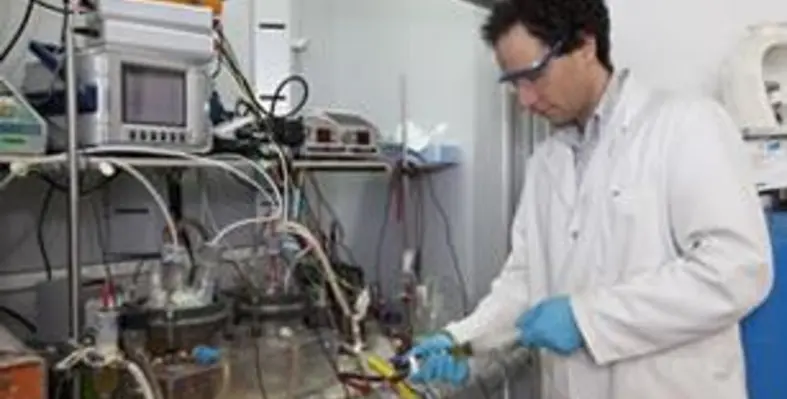The Bill & Melinda Gates Foundation supports joint project by Swiss aquatic research institute and South African water utility.
The separate collection of urine provides innovative opportunities for the improvement of sanitation and the recycling of nitrogen, phosphorus and potassium. Urine separation is an excellent sanitation solution, particularly in places where classic sewer-based sanitation is not sustainable. The Bill & Melinda Gates Foundation is providing a grant of three million US dollars to support a joint project by the Swiss Federal Institute of Aquatic Science and Technology (Eawag) and the eThekwini Water and Sanitation utility (EWS) in South Africa to continue developing practical, community-scale nutrient recovery systems.
The project, covering a period of four years, focuses on the further development of technical solutions for urine processing for nutrient recovery. In addition, project participants, together with experts from the University of KwaZulu-Natal and the Swiss Federal Institute of Technology (ETH) Zurich, will study the logistics of collection and transport of urine from toilets to processing facilities. The Swiss aquatic research scientists and their partners in South Africa will also examine ways in which sanitation can be paid for by the production and sale of urine-based fertiliser, thus enabling a cheap, efficient and widely-accepted sanitation system to be set up.
Alternatives are urgently needed
There is a growing awareness that in many parts of the world an alternative is needed for the conventional sewer-based sanitation and central wastewater treatment system – if only for the reason that not enough water is available for drinking, let alone to be used for flushing. There is a pressing need to reduce the number of people with no access to basic sanitary facilities and safe drinking water, as required by the UN Millennium Development Goals (MDGs). As well as endangering people’s health, inadequate disposal of faecal material poses a risk to the drinking water supply and contaminates the natural environment. Last but not least, the global demand for fertiliser is so great that interest in local sources of nutrients is growing.
Successful preparatory work
Eawag has many years of experience in the research of urine separation, also known as NoMix technology, and in 2007 completed the transdisciplinary Novaquatis project: www.novaquatis.ch. Since then, Eawag’s project in Siddhipur near Kathmandu, Nepal, has demonstrated that urine processed to make the phosphorus-based fertiliser struvite can help to close regional nutrient cycles and promote awareness of the value of the nutrients contained in urine. Farmers participating in the scheme also benefit since they do not need to buy as much imported chemical fertiliser (www.eawag.ch/stun ).
"This experience plus the collaboration with an extremely progressive administrative department in Durban were important reasons for developing our project in South Africa for the next four years," says process engineer Kai Udert, who is the Eawag researcher in charge of the South Africa project.
Collaboration with an innovative water authority
Eawag can count on a forward-looking partner in the South African eThekwini region around Durban, since they have already carried out important pioneering work in the field of sanitation. EWS has been promoting urine-diverting dry toilets since 2002 and there are already around 90,000 such toilets in use. However, urine is simply soaked into the ground, which could create new problems in the longer term. A simple, combined system for nutrient recycling from urine will be developed . This will reduce the costs of sanitation, prevent pollution of water resources and produce fertiliser for the local market.
"That’s a completely new way of thinking and not just a small step on an already well-trodden path," says Kai Udert.












